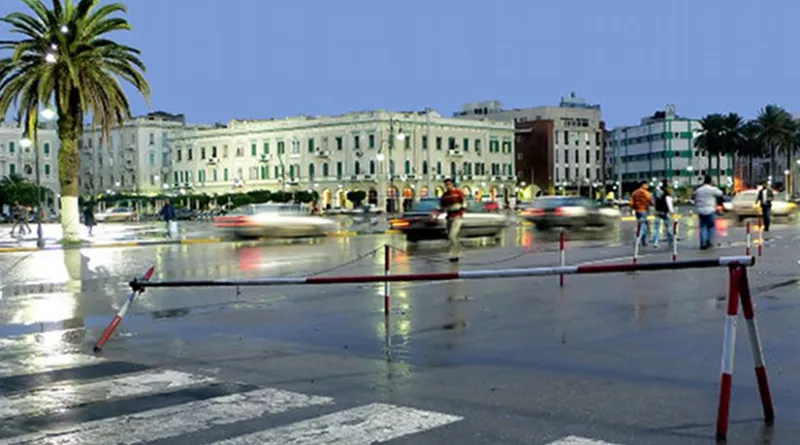Libya is one of the countries in the world with the highest level of oil reserves, but after the 2011 revolution and the killing of Muammar Gaddafi and NATO’s rule, the Libyan state led to a vacuum in the political arena for the entry of ISIS and a division occurred inside Libya in the east and west — now after 11 years, Libya is suffering a major crisis in electricity.
The electricity deficit in Libya during the winter amounted to 1000 MW, and it reached 2500 MW. According to a General Electricity Company report, and the company produces 5500 MW, while the country’s need to cover consumption is estimated at 6500 MW, reaching 8000 MW during the summer months.
Moreover, the company operates in Libya 10 stations to produce electric power, but they do not generate electricity as required. Instead, the electricity network is controlled through two wings, the first in the western region and the second in the eastern region, and the two wings are subject to the General Administration of control.
A new stumble was made by Prime Minister Abdel Hamid al-Dabaiba, in finding solutions to Libya’s crises, despite his grip on its coffers and spending a lot of money, and contracting large projects to generate electricity. As a result, Abdul Hamid al-Dabaiba met these demonstrations by appointing himself as honorary president of the Electricity Company, in an attempt to find solutions without actually having a share in it.
The problems of the western wing are concentrated in the production deficit, because the western region does not have transmission operations, while the eastern wing was damaged after the war that occurred in 2019, and the process of energy transfer is taking place. The problems of generation in the western wing are evident in the failure to complete projects, such as the project of the West Tripoli plant, which was supposed to have a production capacity of 1400 MW and is implemented by a Korean company, but the project has been suspended since 2011. Since 2011. And that the eastern region lies in the fuel supply, as the crisis of not completing the 400KV transmission line has emerged from the Sarir station to Ajdabiya, from Ajdabiya to Benghazi, and from Benghazi to Tobruk.
In addition, the huge budgets of the General Electricity Company establish stations for the production of electric power in every city, but due to corruption operations that have caused the loss of billions of dinars and the projects have not been not implemented. The file was referred to the Attorney General, explaining that the electricity company had contracted to supply between 80 to 120 megawatts from Egypt and was supplying energy from Tunisia only at peak times.
Political experts emphasized that electricity is like a time bomb that may explode at any moment, which may affect the various conflicting leaders in the country. If the electricity crisis is not contained by actors east and west, Libya is one of the richest African countries in natural resources. Libyan parties are working to exploit the electricity crisis to achieve political goals, to overthrow the opponents, led by the unity government headed by Abdel Hamid al-Dabaiba, as it is primarily responsible for the electricity file. Another direction is the electricity file. The House of Representatives in Tobruk was headed by Aqila Saleh, who refused to grant a budget to the government, which hindered the reform of the stopped power plants, and the completion of new ones. And that was the main reason for the government’s failure to provide some services as well as the failure of Parliament to approve its budget provided. They closed the oil facilities, caused a decline in the country’s revenues from oil exports, and reduced the supply of gas to power plants, which exacerbated the crisis. In addition to the disruption of the work of many factories and institutions, the worsening of the electricity crisis with the summer approaching its climax to cover up the country’s multiple crises, especially the conflict over legitimacy of the ruling.
Bashagha explained that “the forces that were opposed to entering Tripoli have changed their positions and want us to enter the capital and we will enter.” If the situation continues like this, chaos may occur because of the demonstrations and people’s demand that there be a single government in Libya that can bring the Libyans together and start the reform process.
Bashagha emphasized that there is no relationship between power outages and the closure of oil facilities and that the residents of the Oil Crescent are working on the fact that the money will not go to corruption, thefts, or other things, with the aim to lift the ban on oil exports.

